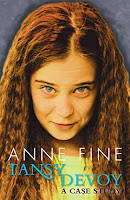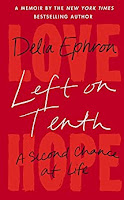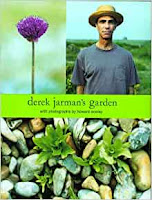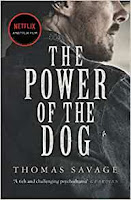Adèle:
Bad Actors by Mick Herron: I've been a passionate Herron fan since the appearance of the first novel in his Slough House series, Slow Horses. This has now been turned into a wonderful TV series on Apple TV. I'm so glad that this has catapulted the denizens of Slough House to the top of the spy genre pile. I adore these books, because not only are they exciting and hilarious, but they're also some of the best-written books I've come across in a long while. The beginning of Slow Horse is knowingly Dickensian. I'm delighted at Herron's success. It's very well-deserved.
Left on Tenth: a second chance at life by Delia Ephron. Readers of this blog will know how much I love Delia Ephron. I reviewed her novel Siracusa and I do still recommend that, especially if you're going on holiday any time soon. This book is non-fiction and it's just as brilliant. It begins with the death of Delia's beloved husband. After becoming a widow, Delia finds love again and it's this late love that gets her through the terrible disease that strikes her. The writing of this book tells us at the outset that cancer was overcome, but the oonclusion is: love helps enormously. Delia's sister, Nora Ephron, died of cancer and that haunts Delia as she lies on her sickbed. It's a warm, heartfelt, funny and terribly sad story but most of all it proves the truth of Larkin's words: "What will survive of us is love."
Linda:
Regenesis: how to feed the world without devouring the planet by George Monbiot. Like many readers, I know and admire George Monbiot as environment writer for The Guardian and as an eloquent speaker and campaigner. This being a subject close to my heart, I bought a copy on publication. I didn't know that his background is in zoology, one of many areas in which he's tremendously knowledgeable. Regenesis looks at our farming systems and how we must urgently move away from intensive animal farming (though as I know from experience, it's an uphill struggle to convince people to change long-established eating habits) if we're to have any chance of reducing carbon emissions, and how we must understand and respect the soil and its complex ecosystems if we're to avoid exhausting its potential for growing crops to feed us. A must-read for those of us who recognise that business as usual will destroy the planet.
Tenderness by Alison MacLeod has been reviewed here by Jane Rogers and it was on her recommendation that I read it. What a tour de force! Daring, original and wide-ranging, it moves from D H Lawrence's death in Italy, back to his stay in a Sussex artistic community and forward to the Lady Chatterley trial. Another thread portrays Jackie Kennedy in the months leading up to her husband's election as President, and her interest in the novel which FBI chief J Edgar Hoover tries to use as a gambit against Kennedy's campaign. Wonderful, eloquent writing throughout. I shall look out for more by this bold, accomplished author.
Derek Jarman's Garden: After seeing photographs and reading about Prospect Cottage, I at last visited in July and was captivated both by this iconic garden and by the unique landscape and atmosphere of Dungeness, with the nuclear power station looming in the background. On my return a friend lent me this book: Derek Jarman's notes, reflections and poems, the last book he wrote before his death in 1994. Weakened by illness he finds inspiration in the garden he's shaped, collecting stones, driftwood and rusted metal to make sculptures and pebble garlands. "A cold, grey day. I write the poems, and while the poems form the rain blows in. Slowly the puddles gather at the roadside. Then, as the day draws to a close, sunlight floods the Ness and the wet shingle glistens like pearls of Vermeer light." Photography by Howard Sooley lovingly captures the uniqueness of the garden and its maker.
I couldn't possibly leave out Mother's Boy by Patrick Gale (I think we all loved this, but I got here first). It's based on the life of Cornish poet Charles Causley, relating his childhood, adolescence and naval experience, Charles's viewpoint alternating with that of his devoted mother Laura. Patrick Gale has described this as ‘a story of someone becoming a writer’, and although Charles was musically talented too, we see his early efforts at drama win him popularity in service life, where he became a coder first at sea (difficult, as he was hopelessly seasick), then in Gibraltar. He lived an uneventful life post-war, living with his mother until her death in a small Cornish town, but Gale draws on the poetry to enlarge on his inner life and sexuality, while Laura, in his depiction, has her own story. A poignant, absorbing read, as readers of Patrick Gale will expect. Read our Q&A with Patrick here.
Celia:
The Wrath To Come: Gone With The Wind and The Lies America Tells by Sarah Churchwell: I have long admired Professor Sarah Churchwell for her fearless writing and journalism; her powerful and distinguished work as historian and academic. The Wrath To Come examines the American Civil War and its legacy through the lens of Margaret Mitchell's novel Gone With The Wind and David O. Selsnick's subsequent film adaptation. Margaret Mitchell, a native of Atlanta, Georgia, from an antebellum plantation and thus slave owning family, published Gone With The Wind in 1938. The novel sold a million copies in the first six months of publication and remains one of the best selling novels of all time. The film was similarly successful. It won a slew of Oscars, including Vivian Leigh for her Scarlett O'Hara and is one of the highest grossing films ever. This huge success has promoted both film and book to 'cultural phenomenon'. Everyone has seen it, read it, or at least heard of it. Rhett Butler's 'Frankly, my dear, I don't give a damn' tops the list of the most famous movie lines. The trouble, as Sarah Churchill sees it, is the whole novel is based on romantic myths and lies about the Confederacy, the Old South, the Lost Cause. It deliberately ignores the realities of slavery, of a slave owning society with its implicit assumption of White Supremacy and its legacy of routine violence, judicial and actual, against African Americans. It is all there in the novel, but it is mediated by Mitchell. Sarah Churchwell looks with different eyes. She teases myth from reality and forensically demonstrates how the extraordinary success of Gone With The Wind, book and film, amplified these myths down through the years, becoming one of the defining stories America tells itself and making it possible for a Confederate flag to be unfurled in an insurrectionist storming of the Capitol, a place where it had never flown before. Some things cannot be consigned to History. Some myths have to be debunked.
The Power of The Dog by Thomas Savage. During lockdown, I joined a book club run by my friend Julia in South Wales by the magic of Zoom, I'd never been in a book club before and it was a new experience to read books I would not necessarily have chosen. One of these titles was The Power of The Dog. I had seen and enjoyed the Jane Campion film, as had the rest of the group (there was some discussion as to whether Benedict Cumberbatch has the legs for a cowboy) and I welcomed the chance to read the book that had inspired the adaptation. My first surprise was to discover that the book was written in 1967. The author was Montana born and ranched raised so the novel, set in 1924, is his lived and remembered experience. It casts an unusual and authentic light on another of America's myths about itself, 'The American West'. As a Western novel, it is out of time. There are motor cars and wirelesses. It contained none of the tropes of the traditional Western. This is a real world and it's changing. The two brothers, George and Phil, reflect this. George is a prosperous, modern rancher, he has a wife, a house, meetings with the bank manager. Phil hankers for a romanticised past that may never have really existed. He is full of contradictions: classically educated, he won't even wash before eating. His overt, über masculinity is an elaborate cloak for his homosexuality which is ultimately his nemesis. A clever book and an impressive movie. Thank you Book Club for making me read it.
Don't miss our special birthday guest post by Michael Arditti!














4 comments:
Thank you Writers Review for 6 years of great recommendations. I’m on holiday reading one of them, Enchanted April reviewed by Cindy Jeffries - perfect!
On 22 July 2022 Mick Herron’s sardonic spy thriller series called Slough House won him the Theakston Old Peculier crime novel of the year award. If Jackson Lamb had won it he'd have had a huge hangover this morning but let's not dwell on what that might have sounded or smelt like. Both Mick Herron's Slough House series and the Burlington Files series of espionage thrillers by Bill Fairclough were initially rejected by risk averse publishers who probably didn't think espionage existed unless it was fictional and created by Ian Fleming or David Cornwell. It is therefore a genuine pleasure to see an anti-Bond anti-establishment novelist achieving immortality in Masham.
Post a Comment